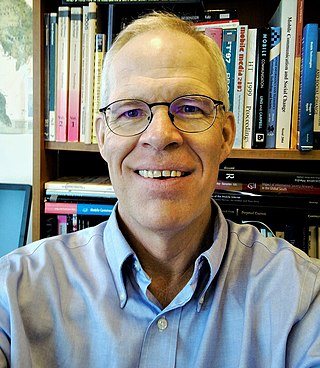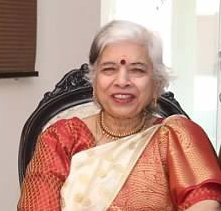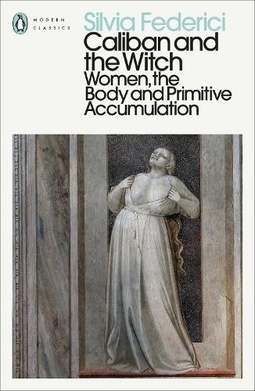Related Research Articles
Feminist theory is the extension of feminism into theoretical, fictional, or philosophical discourse. It aims to understand the nature of gender inequality. It examines women's and men's social roles, experiences, interests, chores, and feminist politics in a variety of fields, such as anthropology and sociology, communication, media studies, psychoanalysis, political theory, home economics, literature, education, and philosophy.
Marxist feminism is a philosophical variant of feminism that incorporates and extends Marxist theory. Marxist feminism analyzes the ways in which women are exploited through capitalism and the individual ownership of private property. According to Marxist feminists, women's liberation can only be achieved by dismantling the capitalist systems in which they contend much of women's labor is uncompensated. Marxist feminists extend traditional Marxist analysis by applying it to unpaid domestic labor and sex relations.
Socialist feminism rose in the 1960s and 1970s as an offshoot of the feminist movement and New Left that focuses upon the interconnectivity of the patriarchy and capitalism. However, the ways in which women's private, domestic, and public roles in society has been conceptualized, or thought about, can be traced back to Mary Wollstonecraft's A Vindication of the Rights of Woman (1792) and William Thompson's utopian socialist work in the 1800s. Ideas about overcoming the patriarchy by coming together in female groups to talk about personal problems stem from Carol Hanisch. This was done in an essay in 1969 which later coined the term 'the personal is political.' This was also the time that second wave feminism started to surface which is really when socialist feminism kicked off. Socialist feminists argue that liberation can only be achieved by working to end both the economic and cultural sources of women's oppression.
Sandra G. Harding is an American philosopher of feminist and postcolonial theory, epistemology, research methodology, and philosophy of science. She directed the UCLA Center for the Study of Women from 1996 to 2000, and co-edited Signs: Journal of Women in Culture and Society from 2000 to 2005. She is currently a Distinguished Professor Emeritus of Education and Gender Studies at UCLA and a Distinguished Affiliate Professor of Philosophy at Michigan State University. In 2013 she was awarded the John Desmond Bernal Prize by the Society for the Social Studies of Science (4S).

Silvia Federici is a scholar, teacher, and feminist activist based in New York. She is a professor emerita and teaching fellow at Hofstra University in New York State, where she was a social science professor. She also taught at the University of Port Harcourt in Nigeria. In 1972, with Mariarosa Dalla Costa and Selma James, she co-founded the International Feminist Collective, the organization that launched the campaign for Wages for Housework. In 1990, Federici co-founded the Committee for Academic Freedom in Africa (CAFA), and, with Ousseina Alidou, was the editor of the CAFA bulletin for over a decade. She was also a member of the Academic Association of Africa Scholars (ACAS) and among the voices generating support for the struggles of students across the African continent and in the United States. In 1995, in the course of the campaign to demand the liberation of Mumia Abu-Jamal, she cofounded the Radical Philosophy Association (RPA) anti-death penalty project, an organization intended to help educators become a driving force towards its abolition. From 1979 to 2003, she was a member of the Midnight Notes Collective.
Mary Bucholtz is professor of linguistics at UC Santa Barbara. Bucholtz's work focuses largely on language use in the United States, and specifically on issues of language and youth; language, gender, and sexuality; African American English; and Mexican and Chicano Spanish.
Cindi Katz, a geographer, is Professor in Environmental Psychology, Earth and Environmental Sciences, American Studies, and Women's Studies at the CUNY Graduate Center. Her work concerns social reproduction and the production of space, place and nature; children and the environment; the consequences of global economic restructuring for everyday life; the privatization of the public environment, the intertwining of memory and history in the geographical imagination, and the intertwined spatialities of homeland and home-based security. She is known for her work on social reproduction and everyday life, research on children's geographies, her intervention on "minor theory", and the notion of counter-topography, which is a means of recognizing the historical and geographical specificities of particular places while inferring their analytic connections to specific material social practices.
Professor Gerard Goggin is an Australian media and communications researcher at the University of Sydney. He has produced award-winning research in disability and media policy alongside other contemporary works on digital technology and cultures.

Heather A. Horst is a social anthropologist and media studies academic and author who writes on material culture, mobility, and the mediation of social relations. In 2020 she became the Director of the Institute for Culture and Society at Western Sydney University where she is a Professor and is also a lead investigator in the ARC Centre of Excellence for Automated Decision-Making and Society. Prior to this she was a professor of Media and Communications at the University of Sydney from 2017 and Vice Chancellor's Senior Research Fellow in the School of Media and Communication at RMIT University in Melbourne, Australia from 2011. She has also been a Research Fellow in the MA program in digital anthropology at University College London.
Mobilities is a contemporary paradigm in the social sciences that explores the movement of people, ideas and things (transport), as well as the broader social implications of those movements. Mobility can also be thought as the movement of people through social classes, social mobility or income, income mobility.

Anne Marie Balsamo is a scholar whose career encompasses contributions as a theorist, designer, educator, and entrepreneur in the fields of feminist technology studies, media studies, design research, public interactives, cultural heritage, and media archeology.
Joan Callahan was a Professor Emerita of Philosophy at the University of Kentucky, an institution where she taught for more than twenty years and served in a variety of roles, including as director of the Gender and Women's Studies Program. Callahan's research has focused on feminist theory, critical race theory, ethics, social and political philosophy, the philosophy of law, and on the junctions of these topics.
Computers are social actors (CASA) is a paradigm which states that humans unthinkingly apply the same social heuristics used for human interactions to computers, because they call to mind similar social attributes as humans.

Richard Ling is a communications scholar who focuses on mobile communication. He was the Shaw Foundation Professor of Media Technology at Nanyang Technological University, Singapore (2013-2021). He has also lived and worked in Norway. He has studied the social consequences of mobile communication, text messaging and mobile telephony. He has examined the use of mobile communication for what he calls micro-coordination, used by teens, and use in generational situations, as a form of social cohesion. Most recently he has studied this in the context of large databases and also in developing countries. He has published extensively in this area and is widely cited. He was named a Fellow of the International Communication Association in 2016. He was named editor of the Journal of Computer-Mediated Communication in 2017.

Giorgio Pacifici is an Italian sociologist.
Giorgio Ausiello is an Italian computer scientist. Born in 1941, in 1966 he graduated in physics under the supervision of Corrado Böhm. From 1966 to 1980, he served as a researcher at the Italian National Research Council (CNR). In 1980, he became a professor of compilers and operating systems at Sapienza University of Rome and since 1990 he has been a professor of theoretical computer science in the department of computer, control and management engineering, where he has been until recently the leader of the research group on algorithm engineering. At academic level Giorgio Ausiello has been chairman of the degree in computer engineering, director of the graduate school, then member of the academic senate and finally chairman of the research committee of Sapienza University. In 2012 he has been nominated professor emeritus of Sapienza University of Rome.
Patricia "Pat" Mainardi is a leading authority on nineteenth-century European art and European and American modernism, and a pioneering professor of women's studies.

Rekha Pande is a Professor Emeritus of history and women's studies at the Henry Martin Institute, an International Centre for Research, Interfaith Relations and Reconciliation, Hyderabad. She is also currently the Director of the Society for Empowerment through Environment Development (SEED). She is the former Head of the Centre for Women's Studies and the former Head of the Department of History at the University of Hyderabad, India. She has also served as a Director Centre for Women's Studies at Maulana Azad National Urdu University (MANUU), Hyderabad. As a feminist historian, Pande researches the theoretical and methodological problems of reconstructing women's history and understanding the roots of women's subordination within the South Asian context. She also attempts to examine the varied historical contexts at the regional/local levels and explain the reproduction and subordination of women at the national and global scale—in various related, albeit different, contemporary contexts. She is an academic activist also associated with the women's movement in India.

Caliban and the Witch: Women, the Body and Primitive Accumulation is a 2004 book by Italian-American intellectual Silvia Federici. Responding to both feminist and Marxist traditions, the book offers a critical alternative to Karl Marx's theory of primitive accumulation.

Studia mythologica Slavica is a Slovene academic journal dedicated to ethnology, history, archaeology, linguistics, religious studies, literary history and philosophy in the context of Slavic mythology. Published since 1998 by the Institute of Slovenian Ethnology and the University of Udine. The journal is an annual published in print and online. Articles are published in all Slavic languages, in English, German and Italian. The main goal of the journal is to present comparative research that presents Slavic culture in the broader context of European and non-European cultures. The journal also encourages the study of contemporary phenomena of spiritual, social and material culture and their transformations.
References
- ↑ Fortunati, Leopoldina; Edwards, Autumn (2021-04-15). "Moving Ahead With Human-Machine Communication". Human-Machine Communication. 2 (1): 7–28. doi: 10.30658/hmc.2.1 . hdl: 11390/1246431 . ISSN 2638-6038.
- ↑ Fortunati, Leopoldina; Edwards, Autumn (2020-02-01). "Opening Space for Theoretical, Methodological, and Empirical Issues in Human-Machine Communication". Human-Machine Communication. 1: 7–18. doi: 10.30658/hmc.1.1 . ISSN 2638-6038.
- ↑ "TIS Associate Editors", The Information Society. Accessed March 13, 2010.
- ↑ "Editorial Board", Journal of Communication. Accessed December 24, 2023.
- ↑ Members Archived 2009-04-18 at the Wayback Machine , Society for the Social Study of Mobile Communication (SSSMC). Accessed March 13, 2010